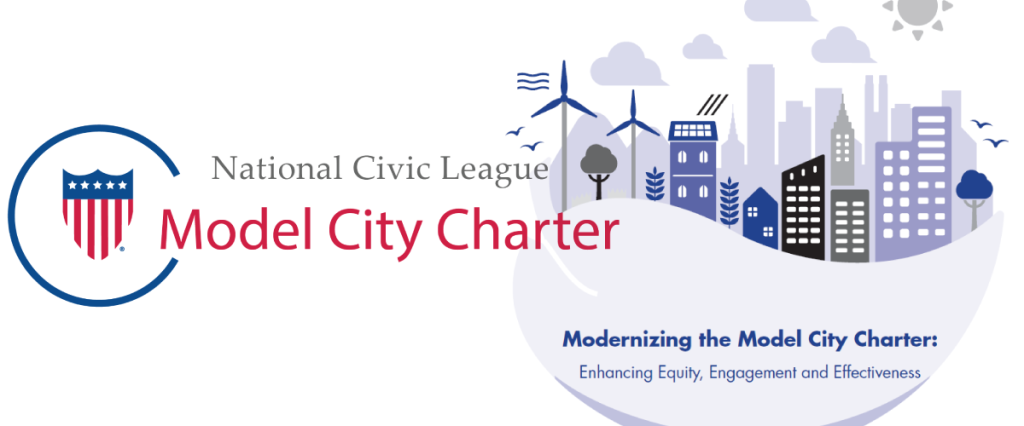
The need to enhance civic engagement and equity is the most significant change to be found in the Ninth Edition of the Model City Charter. The new edition elevates the importance of just, inclusive, and equitable public engagement, community-centered governance and problem solving and the intentional application of an equity lens to all provisions.
Civic Engagement
There are many ways to reflect effective civic engagement in a city’s charter.
- The charter’s preamble and statements of principle should include commentary on the importance of inclusive community engagement, collaboration and transparency. Such principles should be a regular part of daily governance, not just periodic.
- The charter might establish new institutional structures or adapt existing structures to oversee, support, coordinate, track, and measure engagement on an ongoing basis. These structures can include:
o Council committees that include residents and other stakeholders
o Departments or administrative positions
o Public engagement commissions, community advisory boards and youth commissions
o Participatory budgeting processes and commissions
- Descriptions of the city manager, departments, and processes like budgeting should reference the importance of civic engagement.
- A public engagement commission or office could be formed to develop plans and engagement guidelines for other agencies to guide community outreach and collaboration.
Equity
Equity goes hand-in-hand with engagement and should be reflected through inclusive community communication and involvement.
- Most important is the demonstration of the city’s commitment to equity and inclusion in the preamble and statement of principles.
- The role of city managers, chief administrative officers and department heads should include the importance of their work in improving equity in all city operations, applying an “equity lens” to all of the city’s affairs.
- Articles on budgeting and performance should emphasize the importance of reflecting social equity in performance assessments and access to services.
- Statements and requirements on public engagement should include principles of justice, equity, diversity, and inclusion, including outreach, evaluation, and process design.
- Election processes and districting should include considerations of equity, including at-large vs. district elections, direct election of the mayor, eligibility and other candidate requirements, voting timing and procedures and campaign finance.